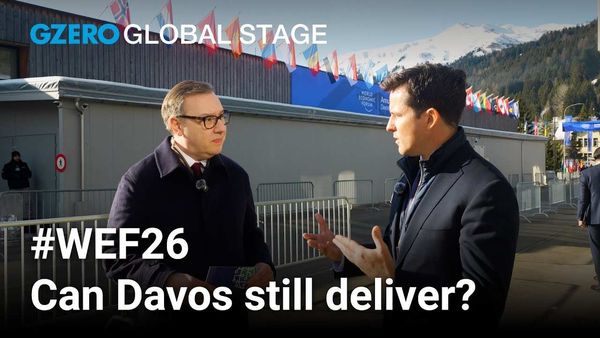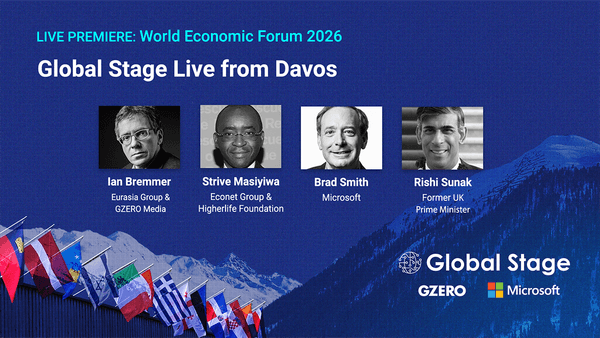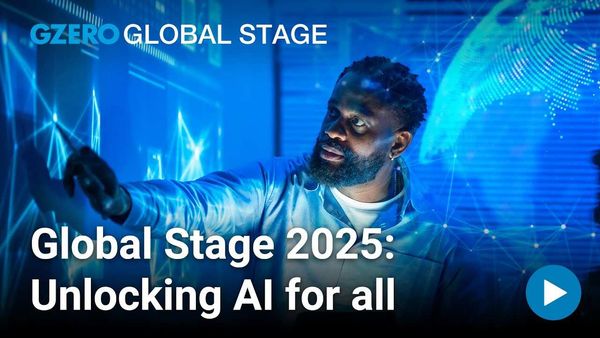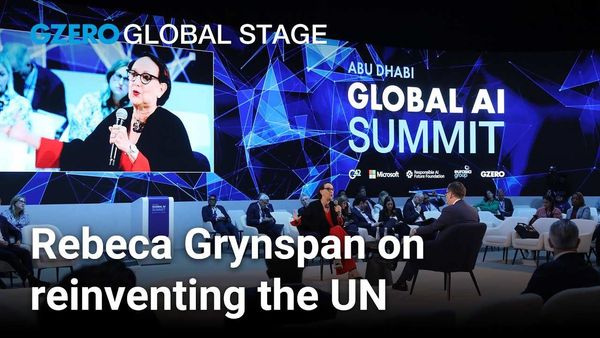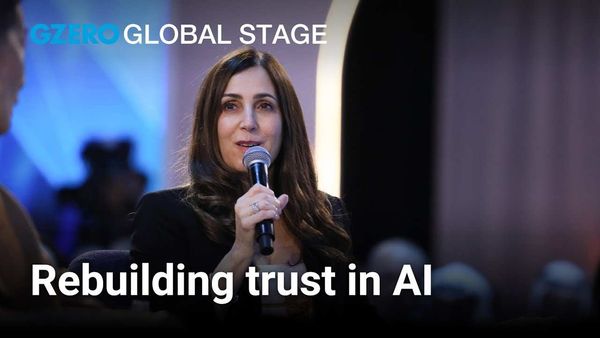How do we ensure AI is safe, available to everyone, and enhancing productivity? It’s a big topic at this year’s UN General Assembly. That’s why GZERO’s Global Stage livestream on Tuesday brought together leading experts at the heart of the action for “Live from the United Nations: Securing our Digital Future,” an event produced in partnership between the Complex Risk Analytics Fund, or CRAF’d, and GZERO Media’s Global Stage series, sponsored by Microsoft. The conversation was moderated by Folly Bah Thibault, a journalist and senior presenter for Al-Jazeera English.
Securing the future starts by building a strong foundation, and the International Monetary Fund plays a key role in the fight by matching funding to the needs of developing economies. But it goes deeper than that, said Managing Director Kristalina Georgieva. “What we deliver is not just money, it is putting in place strong institutions.
”Those same strong institutions will help build a more peaceful world, said Czech President Petr Pavel — but only if countries can learn to compromise. “If we don’t want to live forever in conflict, we have to finally learn that we have to share this planet.”
In that sense, tackling a lot of the problems the world faces — conflict, inequality, technological disruption — boils down to finding shared values and putting funds where they are most needed. “What is regulation and policy if it is not based on values?” asked Under-Secretary-General for Policy Guy Ryder, adding that good policy, properly funded, would allow “you [to] connect people … and educate them to use the technologies” that could prove transformative.
Deputy Secretary-General Amina Mohammed said AI technology will play a crucial role in helping the world achieve Sustainable Development Goals — most of which are in very rough shape. “It’s not about stopping, it’s about really accelerating” to make good on what can be achieved by 2030.
Eurasia Group and GZERO Media President Ian Bremmer said his work with the UN on developing an international framework for AI has focused on “deploying AI to help up meet the sustainable development goals.”
But safeguards aren’t enough, said Microsoft President Brad Smith. “Guardrails aren’t going to ensure it reaches everybody. Investment will,” he said. Microsoft is the largest investor in OpenAI and has invested in more than 20 AI-related startups.
The US State Department is also working to leverage artificial intelligence in advancing global peace. “We see data as the lens that brings the factors that drive instability into focus,” said Anne Witkowsky, assistant secretary of state for conflict and stabilization operations. That means using AI to bring together the big picture — economics, politics, climate, sociology — to identify hot spots before problems spiral.
Executive Secretary of the Intergovernmental Authority on Development Workneh Gebeyehu offered a practical example: “We have a climate center that works for all Africa to predict droughts, floods, and locust storms,” relying on pattern recognition technology. That helps farmers and governments react in real-time, ideally avoiding the worst of the catastrophes.
- Voters beware: Elections and the looming threat of deepfakes ›
- AI for all: Leave no one behind, says Microsoft's Brad Smith ›
- Global Stage: the intersection of technology, politics ... - GZERO Media ›
- Can the UN get the world to agree on AI safety? ›
- Protecting science from rising populism is critical, says UNESCO's Gabriela Ramos - GZERO Media ›




